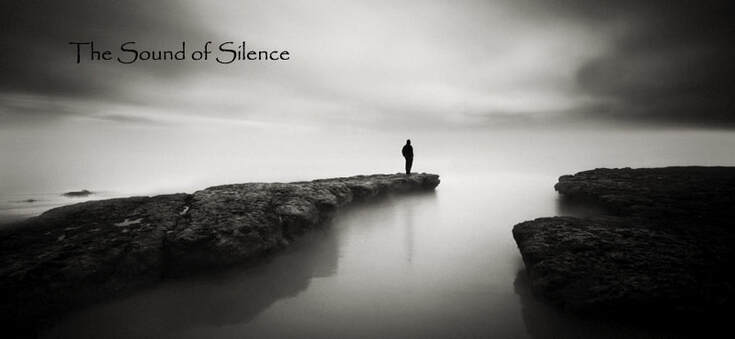
Sunday, June 30, 2019
First Congregational Church of Cheshire
© the Rev. Dr. James Campbell
Luke 9:51-62
When the days drew near for him to be taken up, he set his face to go to Jerusalem. And he sent messengers ahead of him. On their way they entered a village of the Samaritans to make ready for him; but they did not receive him, because his face was set toward Jerusalem. When his disciples James and John saw it, they said, “Lord, do you want us to command fire to come down from heaven and consume them?” But he turned and rebuked them. Then they went on to another village.
As they were going along the road, someone said to him, “I will follow you wherever you go.” And Jesus said to him, “Foxes have holes, and birds of the air have nests; but the Son of Man has nowhere to lay his head.” To another he said, “Follow me.” But he said, “Lord, first let me go and bury my father.” But Jesus said to him, “Let the dead bury their own dead; but as for you, go and proclaim the kingdom of God.” Another said, “I will follow you, Lord; but let me first say farewell to those at my home.” Jesus said to him, “No one who puts a hand to the plow and looks back is fit for the kingdom of God.”
+++
Once upon a time, I left the ministry for a period of ten years. That was far longer than I ever imagined it would be. But I learned a great deal during that time – about myself and God.
I did all sorts of things during those ten years: I was a professional actor, I wrote a couple of plays, I worked in a performing arts photo library, and I worked in a high-powered, Broadway theater press office. In the press office I answered the phones and did data entry and ran errands and planned award ceremonies and even met some pretty big name stars. It was in the environment of a Broadway press office that I learned the full power of words when trying to sell an idea. I learned how valuable it could be to substitute one word for another, or to leave a word out entirely. Good publicity is about selling an idea. And on Broadway, selling a good idea is about selling tickets.
I was a pretty quick study in learning to promote an idea or an event or a person. And when I finally came back to professional ministry; when I was invited to lead a congregation in need to revitalization and growth, I used those skills to sell that congregation to those who were seeking a spiritual home.
At that church, what we were selling was an inclusive Gospel. It was a message of broad acceptance for people who had never felt accepted in the church. And our campaign worked! Many new people came over the years. The membership doubled while I was there. We made it easy for folks. But there were moments when I wondered exactly what it was that we were selling. Sure, it made people feel good. But was it the Gospel?
Here at First Church, we’re getting ready to put together a five-year plan for growth and sustainability. We will try to understand our own vision and purpose. And then we will strive to sell it to the town of Cheshire. But the same question still haunts me: what will we be selling and will it be the Gospel?
These are questions for the entire modern American church, as we seek to navigate these very troubled waters; as we seek to grow at the very same time that record numbers of people are abandoning organized religion. What’s our pitch? What’s our advertising strategy? What, exactly, are we selling?
But we’d better not ask Jesus, because Jesus is a terrible marketer. Jesus doesn’t seem to know the first thing about word-smithing or massaging the message or softening the sharp edges. Instead, Jesus can sometimes scare me to death.
In the Gospel lesson of the day, we are told that Jesus had “set his face to go to Jerusalem.” This wasn’t just any old trip to the Holy City. This would be his last – and he seemed to know that. And so he gathered his courage and made up his mind and “set his face.” Along the way, some people decided that they would like to follow him. To the first who said he would follow Jesus wherever he went, Jesus didn’t say, “Welcome friend!” Instead he replied by declaring his own poverty and homelessness: “Foxes have holes, and birds of the air have nests; but the Son of Man has nowhere to lay his head.” How’s that for a marketing strategy?!
To the second person who wanted to follow but first needed to go home and bury his father, Jesus replied (and I can hardly believe this one): “Let the dead bury their own dead.”
And finally, to the third, who was willing to follow Jesus but just wanted to stop by the house one more time to tell his family goodbye, Jesus replied: “No one who puts a hand to the plow and looks back is fit for the kingdom of God.” Maybe we should put that on a banner on the front of the church!
So what on earth do these words of Jesus mean? How might we understand them in our own life and times? Frankly, I’m not sureBut here are some things for us to consider as we hear and try to understand these difficult words of Jesus.
First of all, these words are framed by their setting. Jesus was on his way to his death. What “Follow Me,” meant just days before the crucifixion and what “Follow Me” meant when he first started his ministry three years before were probably two vastly different things. Threats of violence and the specter of death have a way of clarifying one’s purpose. Jesus knew his time was short, and so even the important distractions of family funerals and family goodbyes, paled in comparison with what was about to happen. Death was imminent. So, the timeline matters and might help us understand Jesus’s bluntness here.
Second, some scholars imagine that perhaps Jesus was talking to himself just as much as he was talking to others. Maybe Jesus, in setting his face, also had to set his mind on facing what awaited him in Jerusalem. He couldn’t afford to think about his own family in those days. He had to keep his own hand on the plow. – Now we know from other stories that Jesus cared for his family because even on the cross he made arrangements for his mother to live with John. So Jesus loved his family, but he simply couldn’t afford the luxury of an emotional return home.
So maybe Jesus’s words were defined by the timeline of the last days of his life. Or maybe Jesus was talking to himself as much as he was to anyone else. But even if those things are true, there is still a message here for us. His words are about life and death, priorities and decisions. And they remain a hard sell.
I don’t think there is anything wrong with selling your church to the world. I don’t think there is anything wrong with finding an appealing message and marketing it to those who seek a spiritual home. But I do think that there is something wrong when churches and preachers don’t admit that the call to discipleship is a call to sacrifice and service. Remember that the defining symbol of our faith is a cross – the ultimate sacrifice. The cross is ugly and terrifying. But it’s also transformative because it calls us to a new way of living.
Lots of folks are terrified that Jesus will ruin the church if we let him speak for himself. But here’s the thing: multiple studies indicate that church growth is directly attached to people being asked for more - not less. People want to be challenged to change the world. For decades we have pretended that asking less will get us more. Meanwhile our churches continue to empty.
But we humans need to make a difference in the world. We need to attach to something bigger than ourselves. What we need is what Jesus offers: Resurrection!
The great German theologian Dietrich Bonhoeffer, murdered by the Nazis, once famously said, Christ invites us to “come and die.” And what he meant was not some morbid sense of self-hatred. What Bonhoeffer meant was that Christ calls us to die to what we think is life and to be raised into true life. Come and die to selfishness. Come and die to fear. Come and die to hopelessness. And then rise to something new, and bold - something that will transform you and the world.
Thanks be to God. Amen.


 RSS Feed
RSS Feed